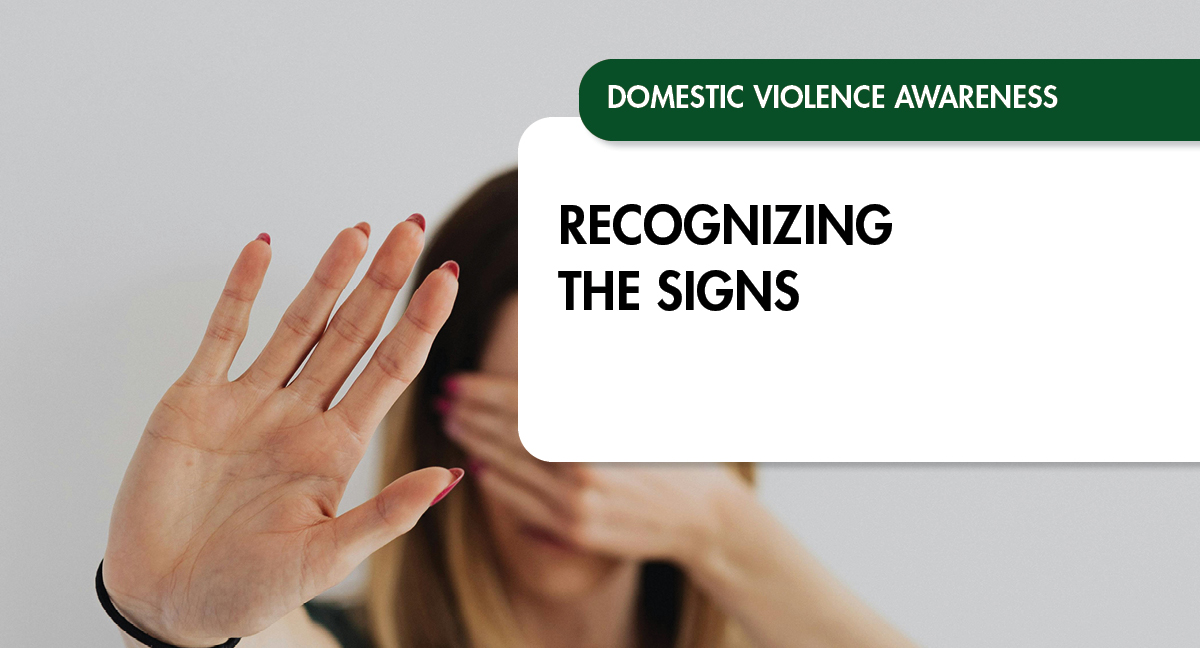
How To Support Someone in a Domestic Violence Relationship
Domestic violence is an issue that often stays hidden behind closed doors, but its impact extends far beyond the home. The workplace, where individuals spend a significant portion of their time, can be a critical space for identifying and supporting those who may be experiencing abuse. As co-workers and employees, it’s important to recognize the signs of domestic violence and understand how to approach the situation with care and sensitivity.
Recognizing the Signs of Domestic Violence
Behavioral Changes: One of the most telling signs of domestic violence can be sudden changes in behavior. This may include a normally outgoing person becoming withdrawn, anxious, or depressed. They may also start exhibiting low self-esteem or seem overly concerned with pleasing their partner.
Physical Signs: Unexplained injuries, frequent “accidents,” or wearing clothing that doesn’t match the season (such as long sleeves in summer) to cover bruises can be red flags. Victims may offer inconsistent explanations for their injuries or seem reluctant to discuss them.
Absenteeism and Tardiness: Individuals in abusive relationships may frequently miss work, arrive late, or leave early. Their partner might exert control by preventing them from attending work or causing them to miss work due to injuries or emotional distress.
Excessive Communication from Partner: If an employee’s partner frequently calls, texts, or visits the workplace, especially in a controlling or demanding manner, it may be a sign of an abusive relationship. The partner might also insist on knowing the employee’s whereabouts at all times.
Financial Strain: Domestic violence often includes financial control. Victims may express concerns about money, have difficulty accessing their finances, or rely heavily on their partner for financial support.
Isolation: Abusers often try to isolate their victims from friends, family, and co-workers. If a previously social employee starts distancing themselves, avoids social gatherings, or declines invitations they used to accept, it could be a sign of domestic abuse.
What to Do If You Suspect Domestic Violence
Approach with Compassion: If you notice signs of domestic violence, approach the person with empathy and without judgment. Let them know you’ve noticed changes in their behavior and express your concern for their well-being. It’s important to create a safe space for them to share if they choose to do so.
Offer Support, Not Solutions: It’s essential to offer support rather than trying to solve the problem yourself. Domestic violence is complex, and leaving an abusive relationship can be dangerous. Encourage them to speak with a trained professional who can provide the right resources and support.
Respect Their Privacy: If someone confides in you, respect their privacy. Don’t share their story with others without their permission, and avoid confronting the abuser directly. Doing so could escalate the situation and put the victim at greater risk.
Encourage Professional Help: Provide information about local resources, such as domestic violence hotlines, shelters, and counseling services. Encourage them to seek professional help, but understand that they may not be ready to take action immediately.
Know Your Workplace Policies: Familiarize yourself with your company’s policies on domestic violence. Many workplaces have protocols in place to support employees, such as offering time off, adjusting work schedules, or providing access to counseling services.
Be Patient: Leaving an abusive relationship is a process that takes time. Be patient and continue to offer support, even if they don’t take immediate action. Let them know you’re there for them, no matter what.
Conclusion
As co-workers and employees, we have a unique opportunity to be a lifeline for those who may be suffering in silence. By being vigilant and compassionate, we can help create a supportive environment that encourages victims of domestic violence to seek the help they need. Remember, your role is not to fix the situation but to provide a safe and supportive space where they can begin to explore their options. Together, we can make a difference in the lives of those affected by domestic violence.
At EVERGREEN Speakers, we have experienced speakers who can provide impactful presentations on healthy relationships, sexual violence prevention, and bystander intervention to educate and engage your campus community on how to prevent domestic violence. If your company or organization is looking for a program to help address domestic violence you can learn more about our Top Speakers for Domestic Violence Prevention Awareness.
